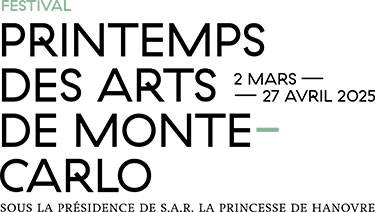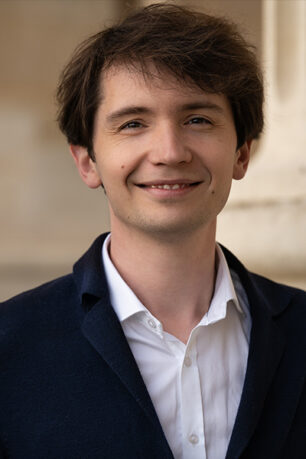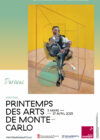This programme brings together pieces in which one of the most striking features in common is light, in its various forms. Intense illumination (Hymne au soleil); prodigious energy or hope for a new day (Prelude and Fugue in G minor, “Herzlich tut mich erfreuen”); irresistible progression towards the most powerful clarity (Fugue sur le nom d’Alain, Litanies); or subdued light (Feux follets, Clair de lune, Les oiseaux et les sources, La joie de la grâce, Prélude sur le nom d’Alain).
The young Johannes Brahms – “he who had to come!” according to Robert Schumann – signed his scores with the nom de plume “Johannes Kreisler Junior” in reference to of E.T.A. Hoffmann’s romantic hero. Impetuous and passionate, nourished by the language of musicians from Northern Germany, he composed two fiery Preludes and Fugues and a dark Fugue in A-flat minor at age 23. The diptych in G minor which opens the programme is an eloquent example of this early Brahms, a sort of homage to Bach’s Fantasy and Fugue in the same key, which makes us feel sorry there weren’t more of this kind. For it’s only forty years later that Brahms wrote more pages for organ, Eleven Chorale Preludes, Op. 122, composed at the close of his life in the spa resort of Bad Ischl, in the Austrian pre-Alps region of Salzkammergut. Radiant sunlight illuminates the fourth chorale, under which Brahms copied the words of the German song: “It will gladden me from the bottom of my heart, the beautiful summer when God will renew and beautify everything for eternity.” And the tenth is animated by the search for ultimate peace: “With all my heart I aspire to a peaceful end…”
With Louis Vierne, we cross geographical and temporal boundaries. More than a generation after Brahms, this almost blind musician, a disciple of César Franck, was both a virtuoso organist (titular of the prestigious organ of Notre-Dame de Paris) and a prolific composer in most instrumental and vocal fields. In 1926-1927, he brought together twenty-four “fantasy” pieces, covering all the major and minor keys, and providing a variety of poetic insights. As concert pieces, they showcased his qualities as a colorist in his recitals, notably in the United States, and occasionally provided grandiose endings to the services of Notre-Dame de Paris. Tonight’s three pieces are taken from the Second Suite, Op. 53: “Feux-follets” is an example of Vierne’s willingly sarcastic writing style; “Clair de lune” (Moonlight) conveys the world of Verlaine (“In the sad and beautiful moonlight / Which has birds dream in the trees / And water fountains sigh with ecstasy”); in contrast, “Hymne au soleil” is a radiant piece, a kind of modern parody of the noble French overtures of the 17th century.
Birds converse with springs in the subdued lighting of Olivier Messiaen’s first piece, taken from the Messe de la Pentecôte (1949-1950), which the composer conceived as the ultimate written record of his vast improvisations at the keyboards of the Trinité Church organ in Paris. He premiered the entire work during the service of the Pentecost festival; and birds sing in bright light in “La joie de la grâce”, taken from the Livre du Saint-Sacrement (Book of the Holy Sacrament), completed in 1987. Their songs are the only sound material (with silence) in this “winged” piece.
The tragic death of Jehan Alain in the battle of Saumur on 20 June 1940 was painfully felt by his friends. Maurice Duruflé, nine years his senior, composed a diptych on the letters of the name ALAIN: based on the name of the notes in Germanic countries, this patronym creates an A-D-A-A-F motif. A graceful prelude, subtly sinking into darkness, is followed by a fugue, after a short transition into a free recitative quoting the theme from Jehan Alain’s Litanies, which sound like a passionate race towards the full brightness of a possible beyond.
What we hear next are precisely these famous Litanies. At the top of one of his manuscripts, Jehan Alain wrote: “When the Christian soul finds no new words in distress to implore God’s mercy, it repeats the same invocation over and over again with vehement faith. Human reason has reached its limit. Only faith continues its ascent.” This “glorious and brief” piece, according to its author, was composed in 1937 and remains to this day one of the most dazzling masterpieces ever written for the organ.
It remains to be seen which lands, which suns and which twilight Karol Mossakowski will take us to in his final improvisation. This art of spontaneous composition has been and remains a privilege for organists; and beyond the particular confines of the organ, let’s not forget that it was also a beloved practice of great composers such as Beethoven or Liszt!
Éric Lebrun





